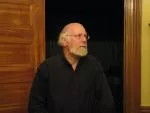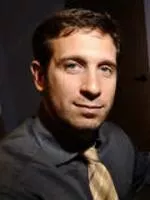
Signaling Theory and the Evolution of Religion
Richard Sosis, director of the Evolution, Cognition, and Culture Program at the University of Connecticut
Monday, February 8, 12:30 pm
Berkman Center, 23 Everett Street, second floor
This talk is part of The Psychology and Economics of Trust and Honesty speaker series, led by Berkman Fellow Judith Donath and hosted by the Berkman Center for Internet & Society’s Law Lab. For more related to Sosis' talk, see this page.
From Richard:
The performance of costly religious behaviors poses a genuine challenge for those who employ egoistic-based models to explain human behavioral variation. Researchers from diverse disciplines have suggested that rituals and other religious behaviors serve as signals of an individual's commitment to a religious group, and some have argued that increased levels of commitment facilitate intra-group cooperation and trust. Here I present results from recent studies that aim to test this claim and I will discuss the relevance of these results for resolving current adaptationist-byproduct debates on the evolution of religion.
About Richard
Richard Sosis is an associate professor of anthropology and director of the Evolution, Cognition, and Culture Program at the University of Connecticut. His research interests include the evolution of cooperation, utopian societies, and the behavioral ecology of religion. To explore these issues, he has conducted fieldwork with remote cooperative fishers in the Federated States of Micronesia and with various communities throughout Israel, including Ultra-Orthodox Jews and members of secular and religious kibbutzim.
Links
- About Richard
- The Adaptationist-Byproduct Debate on the Evolution of Religion: Five Misunderstandings of the Adaptationist Program (PDF)
- Scars for war: evaluating alternative signaling explanations for cross-cultural variance in ritual costs (PDF)
- Signaling, Solidarity, and the Sacred: The Evolution of Religious Behavior (PDF)
You might also like
- communityThe Digital Panopticon Nightmare
- communityComparing Apples to Oranges




